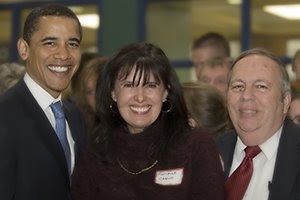Ten tips for leading your business through turbulent times…
What happens on Wall Street unfortunately has an effect on what is happening here in the Cedar Valley, whether we prefer it or not”, according to Dr. Ronelle Langley, President of Executive Coaching International.
Dr. Langley facilitates various management workshops through the College of Business Administration, Executive Development Center to help businesses maintain efficiency and effectiveness through changing times. She shared some strategies that local small business owners can consider to lead their businesses through the current uncertain times:
- Cut costs, but don't drain your lifeblood. You need to cut cost, but do that in clear understanding what makes your organization unique, what keeps your people engaged, and why customers do business with you. Don't follow the lead of a publicly traded DIY home improvement store chain that decided a few years ago to cut down on full-time experts who gave customers advice and replaced them with part-time workers without experience. Their rationale was to cut cost, but it came at too high of a price.
- Watch your cash. Why do some companies survive during downturn while others fail? A CEO of a trucking company in Iowa stated a major survival strategy during a previous recession was that all his trucks were paid off at the time when the downturn started. He did not to have a monthly lease or payment to make, like most of his competitors – some of them eventually bowed out of the game.
- Communicate knowledge exchange. In tough times it is natural to withdraw and resort to some kind of a cave to reflect on strategies. Don't cut out meetings and communication with your employees. Call on the collective wisdom you have in your organization to find solutions.
- Stay flexible and agile. It may be less expensive to buy or build a new building as you expand your new business, but in the short run it may be wiser to rent instead. If demands drop, your flexibility will allow you to be more adjustable. A local up-and-coming business leader explained recently it would be great to have a new building for his growing company, but he would rather play safe and continue renting for the moment.
- Stay true to your core. Protect your core assets – tangible and intangible. Have a passion to protect the heart and soul of your company. What is your core asset? It may be a strong focus on a personalized service and a friendly atmosphere for your customer. It took a long time to build it up – protect it.
- Be proactive with Plan B. Build strategic contingency planning into your core. Ask yourself “What would I do if sales drop 10% or more?” Develop a plan of action now. Read the signs well and react to it.
- Be innovative. Innovation does not only mean to come up with a new product or service. Innovation during troubled times may be to come up with new, innovative ideas for solving everyday business problems and improving the process. It could mean finding better, cheaper, or faster ways to get products to the consumer. Companies such as John Deere are working hard to manage their supply chains better. You can do the same with your company. The often-forgotten everyday innovation is as critical to long-term business success as the more exciting and concrete product or services.
- Keep your team focused. There will always be external factors out there that will influence the success of your organization. Your employees have a choice to waste a lot of time bemoaning how tough times are and what they cannot change or focus on what they can do. As a leader you can help them to focus on that. During meetings ask your team: “How can we make the best contribution to the future of our company?” United Fire and Casualty in Cedar Rapids recently lost their offices and had thousands of clients to serve during the natural disasters. Their managers shared with me that it was exactly the approach they decided to take to help their teams move forward – focus on what they can do to improve their company's future.
- Be a positive leader. Positive leaders can learn and grow from all kinds of circumstances and emerge from adversity even stronger than before. A leader from a global company recently said to me that he is surrounded by people who are reacting in different ways as a result of the current financial crisis. Some react by being scared and not ready to take any risks, while others are paralyzed and not ready to act. He is one of a handful of global experts in his specialized field, and instead of feeling overwhelmed, he feels challenged and ready to find solutions for a positive vision and outcome. When adversity strikes, positive leaders stay hopeful, are more confident in themselves and generate confidence in others, are more connected to their employees, and remain committed to their cause.
- Remember you are marketing to customers who are concerned about their finances. Customers are more cautious in their spending. Recognize it is human to retreat to the ‘home base’ or roots when times are tough. Marketing will then focus on family values. Look at the products you offer and see where you can cut down on extras and frills. Customers will rather go for fewer options if they can pay less for good value.
